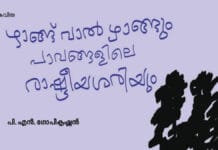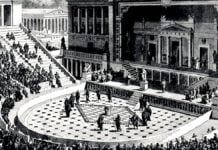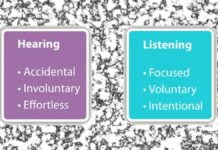Percy Bysshe Shelley once gave up sugar in tea. It was not because he was diabetic, but for a cause. He not only gave up himself but also spearheaded a campaign that resulted in up to 4,00,000 Britons doing the same. Why? Sugar consumed in Britain was grown in Caribbean plantations by African slaves, so had become synonymous with the evils of the slave trade. Shelley –despite famously craving sweets, cakes and sugar –switched to green tea so that he could drink his favourite beverage without adding sugar.
This revolutionary idea is exactly what Percy Bysshe Shelley tells the men of England, the workforce of the Industrial Revolution. His message to the people was one of rebellion and uprise, to throw off the chains of labour and reap some of the fruits of their labours.
The theme of Song to the Men of England is that the majority of the workforce in England is being exploited. The poem is a call to action to the ordinary worker to stop allowing himself to be exploited and to work for his profit instead of benefitting someone else. It recognizes the difficulty and backlash that revolution creates, but it warns the working class that if they do not throw off this class oppression, they are working to create their graves.
In this poem, Shelley rails against those who use their power and positions to exploit the working classes – and also saves some of his ire for those ‘thoughtless’ ones who, like sheep ambling casually towards the slaughterhouse, allow such evil to be perpetrated upon them. This poem was written after the Peterloo massacre (sometimes called the Manchester massacre) of 1819, in which a crowd at a political rally were charged by the local militia, resulting in nine deaths and many injuries.
Shelley’s belief in social justice suffuses this poem, which as the title informs us is directed to the men of England: we can understand this to mean the working men of England: the uneducated, unwashed masses whose labour provided the muscle for widespread agriculture and the industrial revolution, generating unprecedented wealth and plenty through working in fields and factories, often in deplorable, dangerous conditions, the length and breadth of the country. The poem isolates three industries that can be seen to represent the bulk of this workforce: farming; textiles; manufacturing.
The tone of the opening stanza is one of anger and sceptical: the word wherefore actually means ‘why.’ Throughout the poem he casts his critical eye around various institutions and industries, all of whom prop up the wealthy classes and form the backbone of the English economy. Here he directs his gaze onto those who work in manufacturing workshops: forges, blacksmiths and armament factories. He asks why people are willing to fashion the very tools that will be used against them to keep them in poverty.
People plough for the sake of the lords, who are like drone bees that do no work but live off of the work of others. The people of England are doing the real work—but, the poet asks, are they gaining any benefit from this system? They are not enjoying the fruits of their labour, and the tyrants are taking their wealth and very lives without giving them the recompense they deserve. The call is to sow their seed, weave their robes, and forge their arms in their defence. Otherwise, people are merely digging their graves.
The speaker is speaking directly to the men of England. This is another revolution song, a lyric poem that could even be set to music. The structure of four-line stanzas rhyming aabb does give the poem a songlike lyric character. This simple structure and rhyme scheme is less intellectual and more accessible to uneducated people. The diction is less difficult than usual, and the bee metaphor is easy to understand.
The speaker is daring his readers to rise to his challenging call to action. Thematically, Shelley wants the rest of England to see the country the way he sees it: a tyrannical, imbalanced usurper of the people’s power, where the rich reap all the fruits of the poor’s hard labour. The bee metaphor reduces both rulers and ruled to animals—insects—all are bees.
The poet asks: Where is your sting, men of England? Why do you perform all this labour just so that tyrant rulers can reap the benefits? The nation’s upper class are “stingless drones” (bees that do not work), yet they exert undue power over the labouring classes. Shelley’s opening condescending tone turns into all-out pompousness as he insults the workers by accusing them of being too cowardly to rise in arms: “shrink to your cellars, holes, and cells,” he says, understanding that revolution can be hard and bloody but daring the Englishmen to do what they need to do to get what they deserve from their labour. The alternative is that a worker will “trace your grave, and build your tomb ”. He asks, Are the people so dumb and blind as to fail to recognize this fate? The last two stanzas are a warning to the men of England that if they do not change their ways and their country, they are digging their graves and will never experience the joys of equality and liberty.
Stanza 4 suggests that people are not paying attention to their situation. Not only do they put up with engaging in hard labour to appease the rich, but they also do not understand that they are reaping meagre benefits from their employment. Stanza 6 is where the poet changes from the inquisitive to the suggestive, no longer asking questions but encouraging the people to retain the fruits of their labour in preparation for fighting back. His message is clear –the working classes don’t get a single one of all the things they are entitled to, many of which sit on the lowest tier of Maslow’s hierarchy of needs. The call is for a kind of tax strike whereby the people keep working but only for themselves.
This radical and pretentious approach is Shelley’s way of daring his countrymen to act more like the French, who were capable of starting a revolution. Shelley leaves it to other poems to explain the principles on which the revolution and the new order should be based, but here the key principle is that people deserve to get the full benefits of their work.
Shelley makes liberal use of rhetorical questions: he provides no reply because he considers the answer to be self-evident –there is no good reason why so many strong men should allow themselves to be brought so low by so few. Shelley’s anger is carried through the sound patterns of the opening stanza: alliteration in lords who lay thee low and rich robes; assonance in wherefore, plough, for, lords, low, toil, robes. O can be a deep, round sound good for carrying strong emotion.
Shelley’s mistrust at the passivity of the working classes reaches its peak in stanza 3. Part of the power of his poem comes from repetition– this is the fourth time he asks ‘wherefore’ –why? You might also hear an emphasis on the last word of each line: while the prevailing rhythm is trochaic (two syllables arranged in a stressed-unstressed pattern are called trochees). The trochaic rhythm puts an incredulous note into the word wherefore: rhythm serves to underline his anger and emphasizes the rhetorical question –why. Shelley has each line end on a stressed beat. Plough, low, care and wear are all verbs, emphasising the notion of work –and work that only benefits others at that.
The aristocratic classes are interestingly characterised by Shelley as stingless drones, a metaphor, a more obvious comparison could be the queen bee, who lives a cosseted, sedentary life while her workers (Bees of England) see to her every need. He calls the higher classes “ungrateful drones”, which is an extended metaphor for a male bee that does nothing except a mate. He labels the workforce, the “bees of England”, which signifies a lot because bees work nonstop, and work until they die.
The upper class are ‘stingless’ (powerless), they only have power over the working classes because the working class are complicit in their exploitation. Shelley doesn’t spare the workers from their share of his righteous anger and is angry with the tyrants but, more so, he is angry with the men of England who wilfully allow such blatant injustice to be perpetrated upon them without resistance. His poem can be read as a protest song – an exhortation to action and call to arms.




























